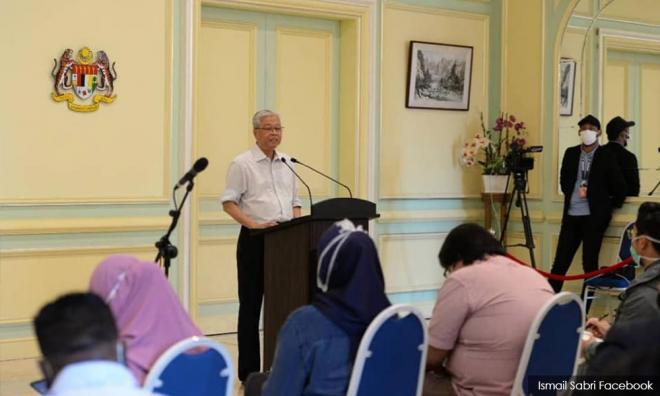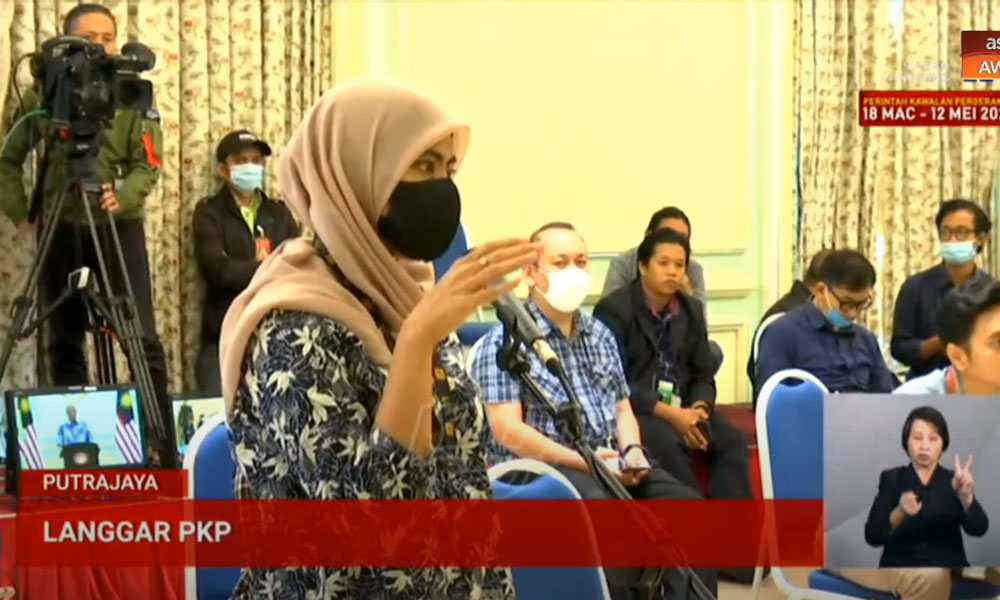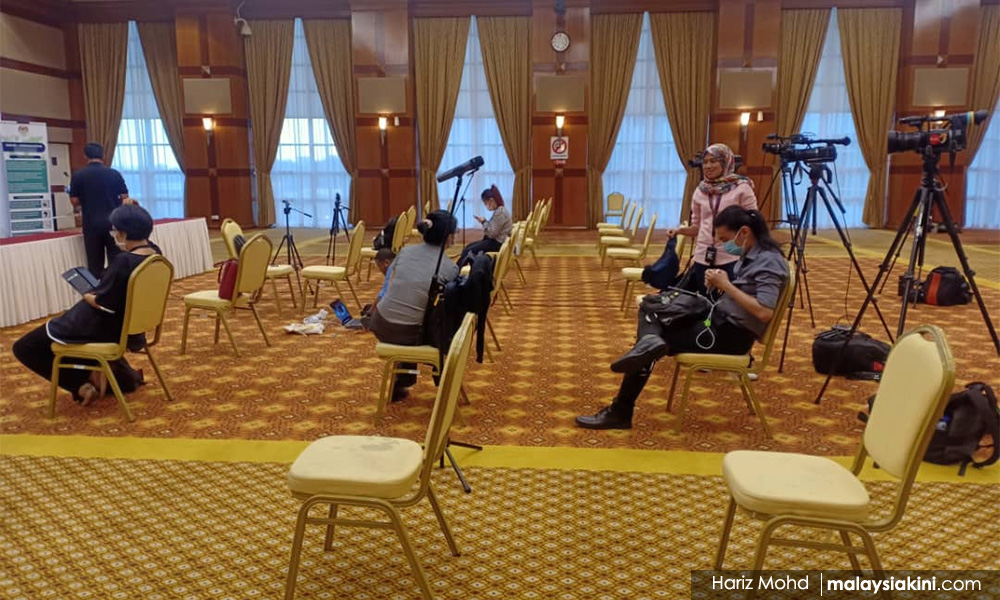Gov't restrictions among challenges to Covid-19 reporting, says journo federation

CORONAVIRUS | Three in four journalists in 77 countries have faced official restrictions, obstruction or intimidation in the course of reporting on the Covid-19 pandemic, according to a survey by the International Federation of Journalists (IFJ) of over 1,300 media personnel.
In Malaysia, a part of the restrictions was enforced by the Prime Minister's Office for coverage of Senior Minister Ismail Sabri Yaakob's daily Covid-19 press conferences (above) after the National Security Council meetings.
This limitation to "Official Media Only" - national broadcaster RTM and national news agency Bernama - is in contrast to coverage for Health director-general Dr Noor Hisham Abdullah's daily Covid-19 press conference at the Health Ministry in Putrajaya.
The latter was open to all media but with preventive guidelines in place, including to enforce social distancing, having temperature checks and mandating the wearing of face masks.
National Union of Journalists Malaysia (NUJM) vice-chairperson Farah Marshita Abdul Patah said the bar on Ismail Sabri's press conferences posed a challenge for journalists left out, particularly if their questions were not in line with the national agencies' narrative.
"There needs to be a wider media representation. This includes coverage of major government press conferences," Farah told Malaysiakini when contacted.
His daily press conference is televised live on RTM and on Ismail's official Facebook page.
In the absence of other media agencies, Farah said there are questions left unasked, for example, on the controversial issue of actions taken or not taken against movement control order violators.
"The media understands the need for social distancing. But if their representation is wider, then the questions will appear more balanced.
"If a press conference is monopolised only by the mainstream media or national news agency, then the check-and-balance role will be lost," she said.
Senior journalist Syamsiah Sahat (below) is among three Bernama personnel assigned on rotation to cover Ismail's press conferences.

Given the restriction, Syamsiah said her questions are not only based on personal research but at times asked on behalf of other media colleagues.
"As a fellow media practitioner, I will try to make sure that their questions are asked," she said, admitting to being unsure about the reasons behind the limitation.
The mother of four said working during MCO also posed an additional challenge with all of her children staying at home.
"Before going to work, I need to make sure to attend to my children.
"Juggling with time and pressure could lead to unwanted mistakes, either statements taken out of context or other issues," she said.
The PMO's restriction is formally stated in notices to editors issued by its corporate communications unit, including one dated April 7 sighted by Malaysiakini.
In the past, an aide to Ismail had also confirmed that no permission for coverage at the PMO would be granted to other media outlets.
Meanwhile, the IFJ survey conducted between April 26 and April 28 among 1,308 journalists also revealed other threats to press freedom amid the coronavirus outbreak.
Among others, it was found that the majority of staff and freelance journalists who remained working reported pay cuts, lost revenue, cancelled commissions or worsening working conditions.
More than a quarter of the respondents lack essential equipment to enable them to work safely from home while one in four lacked any protective equipment to work in the field.
"This pandemic has not only exposed media workers to physical vulnerabilities, but it has also put them in the firing line of government-imposed controls on reporting and movement.

"The contagion of economic fallout has also decimated an already battered media sector, with many companies reducing hours, holding back salaries or simply sacking their media staff outright," said IFJ Asia-Pacific director Jane Worthington in a statement to Malaysiakini.
"From the streets of Wuhan, China - the global epicentre of the Covid-19 pandemic - journalists and media personnel have been among frontliners remaining at work to report developments in 217 of 247 countries and territories recognised by the UN with confirmed cases of infections.
"This health crisis is also challenging freedom of expression in ways never seen before.
"It has put journalists in the thick of an invisible viral war as essential workers for truth and freedom of expression; reporting on a crisis with impacts and unfolding dimensions unseen in our collective lifetime," said Worthington.
Amid the challenges, she noted there have been media outlets and individual journalists that found ways to continue carrying out a duty to inform, hold governments to account, educate, and shine a light for broader society to defend democracy.
This includes moving towards more data-driven projects and exploring alternative ways to tell an important story.
"And all this in the face of states grabbing every opportunity to expand authoritarian controls and increase state and corporate surveillance," she said.
This year, Malaysia has once again moved up the Reporters Without Borders (RSF) press freedom ranking, citing a more "relaxed" environment for journalists.
According to RSF's press freedom rankings for 2020, Malaysia rose 22 rungs and was now ranked 101 out of 180 countries monitored.
This is the second year in a row Malaysia has climbed the rankings.
It is also the second year in a row where Malaysia was named as the country making the biggest jump in standings. - Mkini
✍ Credit given to the original owner of this post : ☕ Malaysians Must Know the TRUTH
🌐 Hit This Link To Find Out More On Their Articles...🏄🏻♀️ Enjoy Surfing!



















Post a Comment